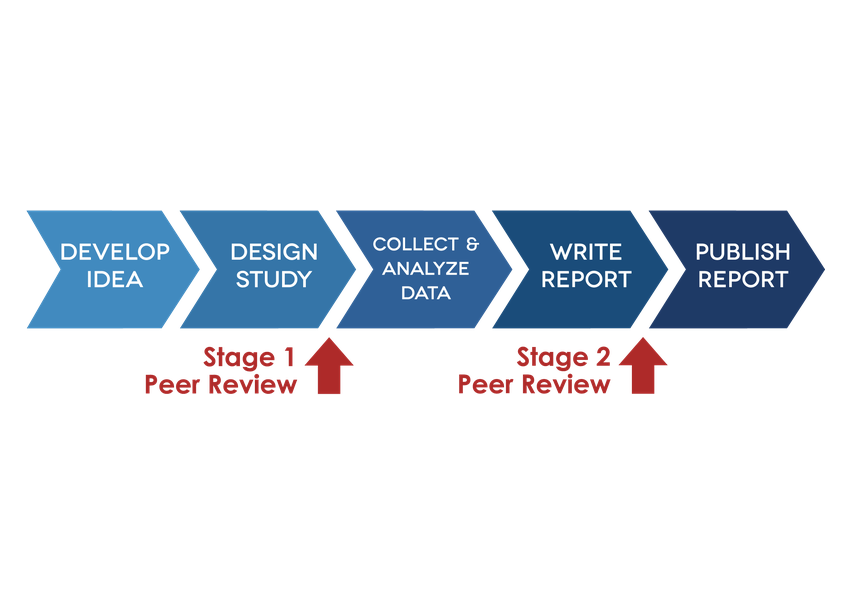Registered Reports
Registered Reports are a publishing format developed by the Center for Open Science to incentivise and reward good research practices and study design. Unlike traditional research articles, where authors submit a manuscript describing the results and conclusions of a completed research project, in a Registered Report a study design and research protocol are submitted for peer review prior to any research being carried out.
The cornerstone of this publishing format is therefore that a large part of an article manuscript will be assessed prior to any data collection. The purpose of this is to reduce publication bias (only significant results get published), with reviewers and editors unable to reject an article on the basis of having obtained null results, or on the basis of the results deviating from predictions.
Publishing a Registered Report is a two-stage process
In the first stage, authors submit a Registered Report Protocol – a manuscript detailing their planned study design. Peer reviewers are asked to assess the importance of the research question proposed, the rationale behind any hypotheses, and the soundness of the proposed methodology. Manuscripts that pass this peer review at this stage are issued in-principle acceptance from the journal. In-principle acceptance is a commitment by the journal to publish the results of the planned research, no matter what those results turn out to be, as long as the authors follow the methodology they have proposed.
In the second stage the authors, having completed their research, submit a complete manuscript consisting of the original research protocol as well as their results, analysis, and conclusions. This manuscript undergoes a second round of peer review in which reviewers are asked to assess whether the authors have followed their proposed methodology, and explained any reasonable deviations from their protocol. If the manuscript passes this second stage of peer review, it is published as a completed Registered Report. Editorial and peer review decisions at this stage will not be based on the perceived importance or novelty of the research results.
For more information about what peer reviewers assess at each stage of a Registered Report, please see our guidelines for reviewing Registered Reports.
For general questions about Registered Reports at Cambridge, please contact openresearch@cambridge.org .
The Registered Report process
- Develop idea
- Design study
[Stage 1 peer review]
- Collect & analyze data
- Write report
[Stage 2 peer review]
- Publish report

The Registered Report process

- Develop idea
- Design study
[Stage 1 peer review]
- Collect & analyze data
- Write report
[Stage 2 peer review]
- Publish report